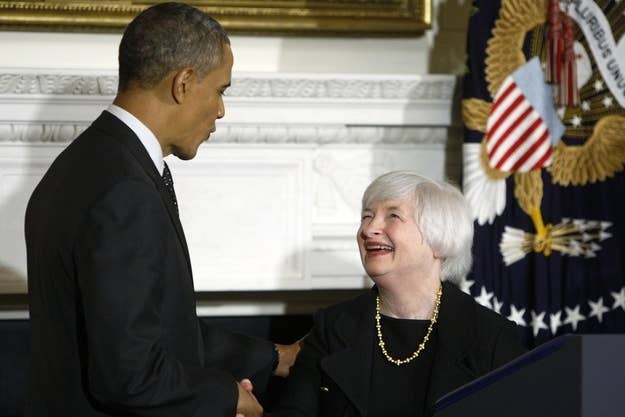
The Federal Reserve is meeting today and tomorrow to make a decision on whether to continue its economic stimulus, but this meeting, the result of which is expected to be similar to last month's decision to stay the course, could have far reaching implications for the stock market for the remainder of the year.
That's according to economists and market watchers who believe that due to the government shutdown delaying decision-making data to get into the hands of the Fed board, the market could be in for an extremely tumultuous end to 2013, as stock values will be thrown into disarray.
"I thought the Fed would be passing the baton to the private sector — I expected the taper — but what we're really doing is kicking the can down the road," said Kathleen Gaffney, a three-decade bond expert and vice-president of Eaton Vance Management. "I'm surprised how quickly the market has responded to no taper, so valuations have the potential to get really out of whack. We won't know if the bubble will get too big, because of the government shutdown, until the first quarter of next year."
The fact that Fed chairman Ben Bernanke's presumed successor Janet Yellen is considered a dove by the street won't help investors' quick reactions to the continuation of the board's current dose of monetary policy, which involves purchasing $85 billion of bonds each month to help jumpstart the economy.
"She may surprise and do the right thing," Gaffney said of Yellen deciding to end the stimulus plan, known as quantitative easing.
Richard Bernstein, CEO of an eponymous advisory firm and formerly the chief investment strategist of Merrill Lynch, agrees that the Fed will likely take its time with the decision to taper, something that sent shockwaves through the finance world last month before the government shutdown began. He added that consumers will go for stocks that perform well cyclically to combat the uncertainty surrounding the current monetary policy environment.
"The Fed will be very late in raising interest rates in the short term, but rates will go up as the economy is strengthening," Bernstein said. "Play this market by buying cyclical stocks for incremental cash flow."
The Fed's decision, expected tomorrow, also has far-reaching impact on the price of stocks and bonds throughout the world. The roller coaster ride of the U.S. monetary policy debate has been felt far and wide, said Eric Stein, a V.P. at Eaton Vance.
"You really can't overstate how much monetary policy expectations for the next six to 12 months have changed in the last two months," Stein said. "We'll have to at least wait until early next year to get good data to make a decision, and U.S. monetary policy affects every asset price in the world."
